After rewatching Band of Brothers and finally getting a chance to watch Masters of the Air, I’ve been on a big WWII history kick… I studied European History (1800s - present) so a lot of my college time revolved around learning about the World Wars. I stumbled upon my junior thesis the other day where I examined “Wine as a Symbol of Frenchness during World War II” and I was immediately sucked back into the history of the beverage.
Just because many of us are participating in dry January does not mean that should stop us from learning about the history of different alcohols or wine. If anything, let’s take the time to appreciate what we’re not enjoying at the moment, and be able to savor it just that much more in February! Everything in moderation my dudes!
Let’s start off with the basics why don’t we?
What is Wine?
Simply put, wine is fermented fresh grape juice. The natural yeast present in grape skins ferments with the help of the fructose in the plump and juicy part of the grape transforming it into alcohol.
Red: made from red/purple skinned grapes
White: made from red/purple/white/green skinned grapes but the skins are removed prior to fermentation
Rosé: made from red/purple skinned grapes but the skins are removed sooner than during the red wine process so there’s less overall skin contact
Orange: made from white/green skinned grapes
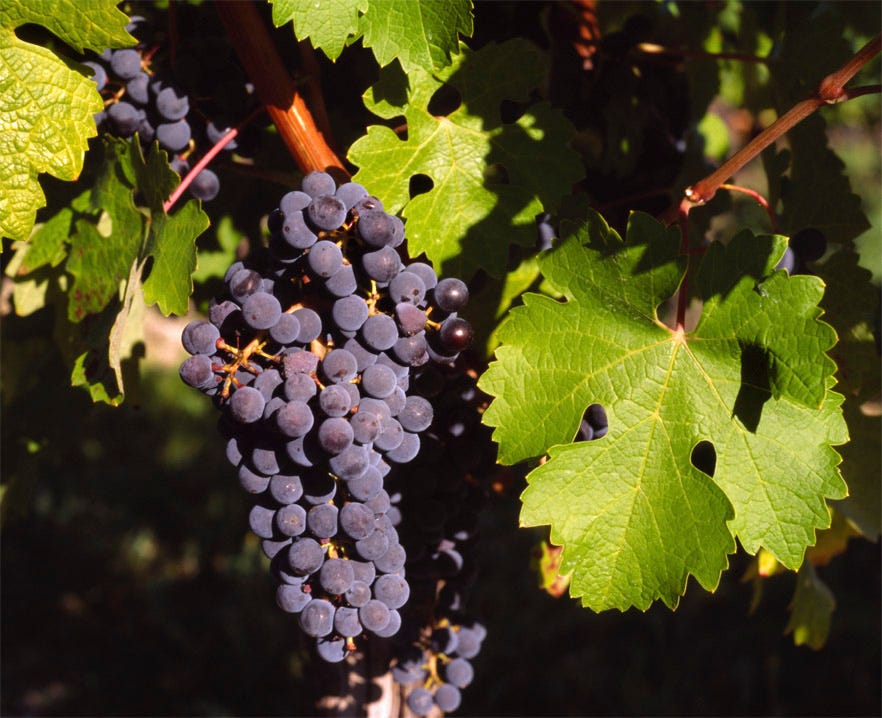
The original grape is called vitis vinifera and has spread to all continents with the exception of Antarctica. While I won’t get into hybrid grape species that have appeared, just know that they are all variants of vitis vinifera and that thanks to them, wine was able to develop successfully in diverse regions and climates across the globe from Bordeaux and Chianti to Napa and Barossa Valley.
Every region of the world has their own fermented drink but let’s try and focus (for once) on wine alone. Ancient alcohol was relatively low alcohol content, around 13%, so it was common to drink a lot more and a lot more frequently. It wasn’t until distillation first appeared in 9th century during the Islamic Golden Age that a drink could really pack a punch. How come? Well, without distillation, fermented beverages relied on the natural fermentation of fruit; whereas with methods to distill, the liquid became highly concentrated and the ABV % rose - so much so that it was only used only as medicine at first!
Where does it come from?
From the beginning, wine was a symbol of civilization - it takes skill to grow grapes, harvest them, to make the wine, and finally to store it properly.
Let me preface this by saying there is a lot of debate surrounding the origin story of wine. Wine most likely developed around 6000 BCE in the transcaucasus, in present-day Georgia south of Tbilisi. It is unbelievable to imagine that in the Neolithic era, people were already drinking wine?! As foragers they most likely just collected grapes thinking nothing of it, let them sit a bit too long, and tada discovered the intoxicating fermented grape drink.
The evidence comes from remnants of wine in clay vessels. Archaeologists and scientists were able to distinguish tartaric acid in this poetry which is a key indicator of wine. While grapes can be left out to ferment and become wine “by chance”, the thought to store wine clearly indicated that wine was also made with sheer intent and purpose. Further, wine was hidden underground in their respective pottery, called Kvevri*, which means that it was kept cool and saved for special occasions - religious events, dinners, political ceremonies etc. From the beginning, wine was highly valued due to its mind altering effects and considered a beverage for the elite.
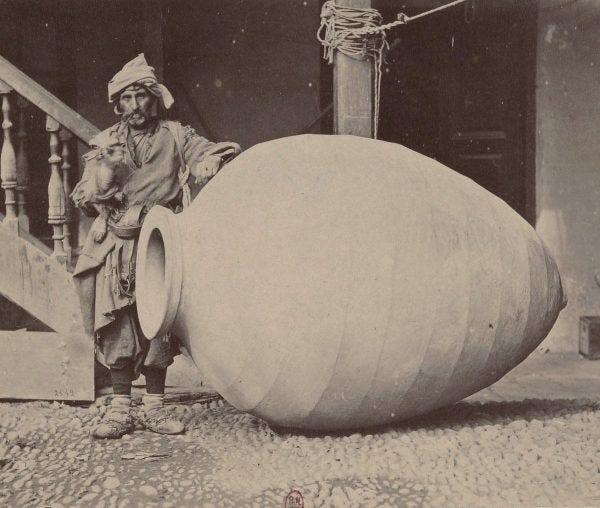
*Learn more about these vessels and the wine making method in Georgia here!
As recently as 2008, archaeologists uncovered an entire settlement in modern-day Armenia which they called the Areni-1 cave complex. Within this area, they found an entire winery in 2011 dating 4000BCE!? There are traces of wine in old clay vessels which were buried underground to control the temperature. There is also evidence of vintners pressing grapes with their feet in long basins to produce this very wine - SO neat.
The Ancient World
Although its exact journey is contested by archaeologists and historians, wine quickly spread to different ancient civilizations. We’re going to jump around from territory to territory now so get ready and put your focus hat on.
Greece
Wine was an extremely popular beverage in Greece for many reasons. First, Greek physicians such as argued that wine was good for health . Further, Greek poets stated it boosted creativity. Some Philosophers, however, promoted temperance early on but this did not stop the rise in popularity of the beverage.
Wine first arrived in Greece around 3000 BCE thanks to Phoenician traders but it was not until 300 BCE, that Alexander the Great brought wine to Asia. It stayed within borders for a while and even had a religious status in Greece, often referred to as the “juice of the gods”. Dionysus, depicted below, was one of the main religious figures of the time and was the God of Wine.
Have you ever heard of a symposium? This common event in Ancient Greeks was a feast, concert, hang out sesh, debate, and party all in one. It was SUCH a big deal that there was even a specific master of ceremonies called a symposiarch for each symposium hosted. This symposiarch would decide how much wine would be drunk and how diluted it would be in each krater, the serving vessel depicted below.
The word Barbarian comes from the Greek use of the word for anyone who was NOT Greek. In Ancient Greece, anyone who did not dilute their wine was considered barbaric.
There were around 300 native grape varieties in Greece and sweet wine was preferred. Chios, now known for their mastiha and my Yiayia’s island (shoutout) was a hot spot for wine making! The wine industry unfortunately died out during the 400 year Turkish occupation starting the mid 1500s due to the Muslim influence. The Turks heavily taxed farmers and wine makers so the only place where winemaking survived was in monasteries. Thank you to all the Greek monks for keeping the wine making tradition alive!
I’ve recently starting enjoying Assyrtiko from Santorini - a crisp, dry white wine.
Egypt
As evidenced in Greece, wine played an important role in Egyptian ceremonial life and was often associated with blood. Shesmu, also known as the “slaughterer”, was the god of the red-stained winepress, and would unleash his wrath on any enemy of the pharaoh. Pharaohs were also commonly buried with wine bottles.
Initially, wine was made using various fruits and sugar such as figs, dates, and pomegranates. Egyptians used pressings vats to stomp the grapes (seeds, stalks, stems included) were also common.
To transport wine safely, Egyptians sealed their amphorae with reed and mud joints covered with tar, which prevented any spoilage. Most notable, however, is that Egypt was the first place ever to create wine “labels'“!
Fun fact is that Cleopatra’s favorite wine is the ancient Greek wine, Muscat of Alexandria, which is still made today. BRB running to the store on Feb 1st to stock up!
Rome
Romans highly changed the wine world due to their innovations. Firstly, they invented the wooden wine barrel. This is extremely important in wine’s journey because barrels not only let wine evaporate a little, but the wood also gives off a specific flavor to the wine. To this day, this kind of winemaking production is still common in places like France as do alter the flavor of certain wines. Further, they also invented glass bottles so big up Rome.
Remember how the Greeks didnt drink to get drunk? well the Romans did. The rich particularly had parties. The less wealthy, however, still enjoyed a form of wine called muslin. The legendary Greek god Dionysus became known as Bacchus in Roman mythology.
Religion
Wine crossing geographical borders also allowed for religious and philosophical ideals to be shared amongst people of different backgrounds. As Christianity spread, so did the need for more wine! Benedictine monks specifically, helped spread the wine across borders. During a church service, one drinks wine to represent the blood of Christ during the Eucharist - this meant that as the religion obtained more followers, more vineyards had to be planted to meet the demand. Excessive intoxication, however, was always deemed sinful.

In the Middle East, Spain, and Africa, there was initially a law against praying while drunk which transformed itself into an overall ban on alcohol in the Islamic religion.
French Dominance
During the 1700s, Bordeaux was already popping off in the wine world but was reserved primarily for French aristocracy. Now get THIS: when the French Revolution took place in 1789 and vineyards were taken away from the aristocracy, they came into the hands of the less wealthy who had to work for a living. This created this extreme competition because it was their livelihood so they strove to make the best of the best wine. They had to pay the bills! They didn’t just make wine for funsies like the previous aristocrats did.
Although I could write about wine in France for ages, this isn’t a novel it’s a newsletter so let’s move onto more modern times.
New World
With colonization and trade routes, wine made its way to new territories. The Spanish brought wine to South America for religious purposes and it ended up making its way north to the United States. In the US, wine is named after grape varieties used rather than in France where they are named by region! I recently learned that nearly 75% of wine drunk in the US is American wine, nearly all made in California.
New World wine, from Australia and United States, doesn’t have much history apart from their rise to fame during the phylloxera plague in the mid 1800s. This tiny bug wrecked vineyards across Europe, leaving a global shortage of wine which *ding ding ding* the New World wine could replace.
As mentioned prior, this is a BRIEF history of wine because there is simply too much information out there to ever compile. If this was interesting to you and you’d like to learn more about wine, feel free to check out some of the resources here below.
Further Reading & Listening
Wine - Marc Millon
Wine and War: The French, the Nazis and the Battle for France's Greatest Treasure - Donald Kladstrup and Petie Kladstrup
The History of Wine in 100 Bottles - Oz Clarke
Uncorking the Past: The Quest for Wine, Beer, and Other Alcoholic Beverages - Patrick Edward McGovern
Ancient Origins: The History of Wine (podcast)
Let me know what food history, recipe, or city guide you’d like me to share next week!




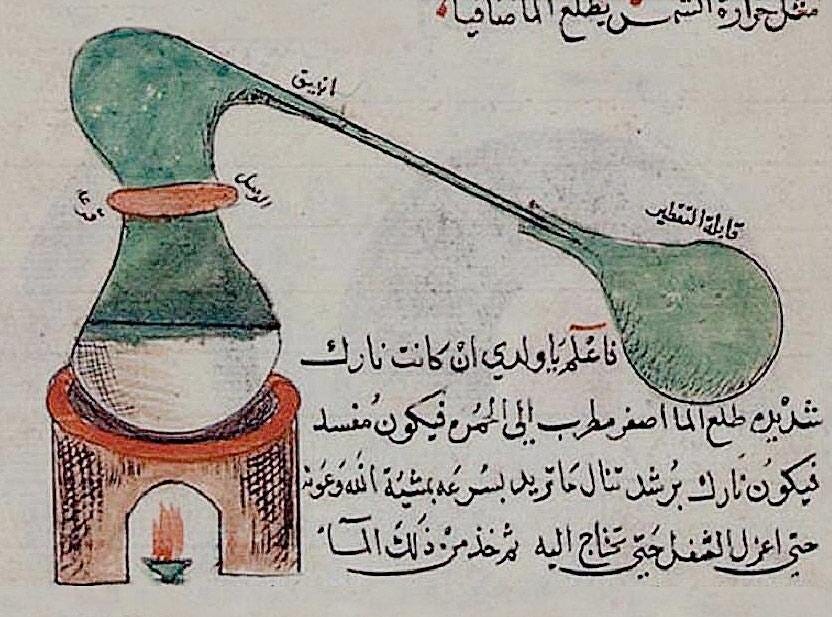


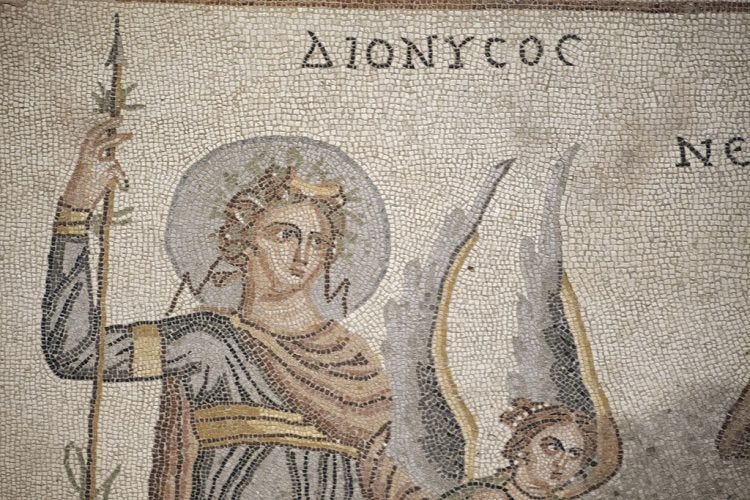

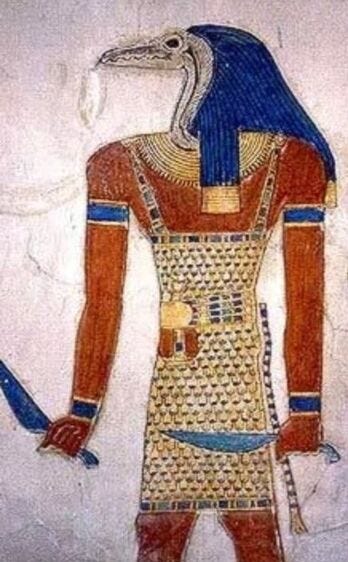
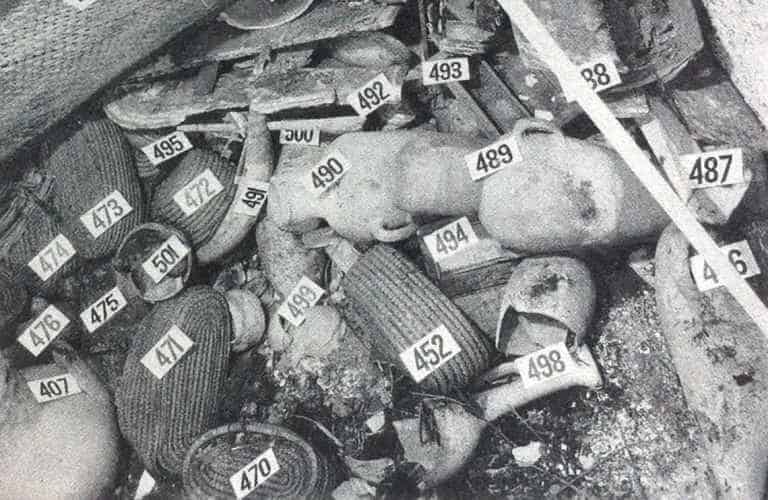
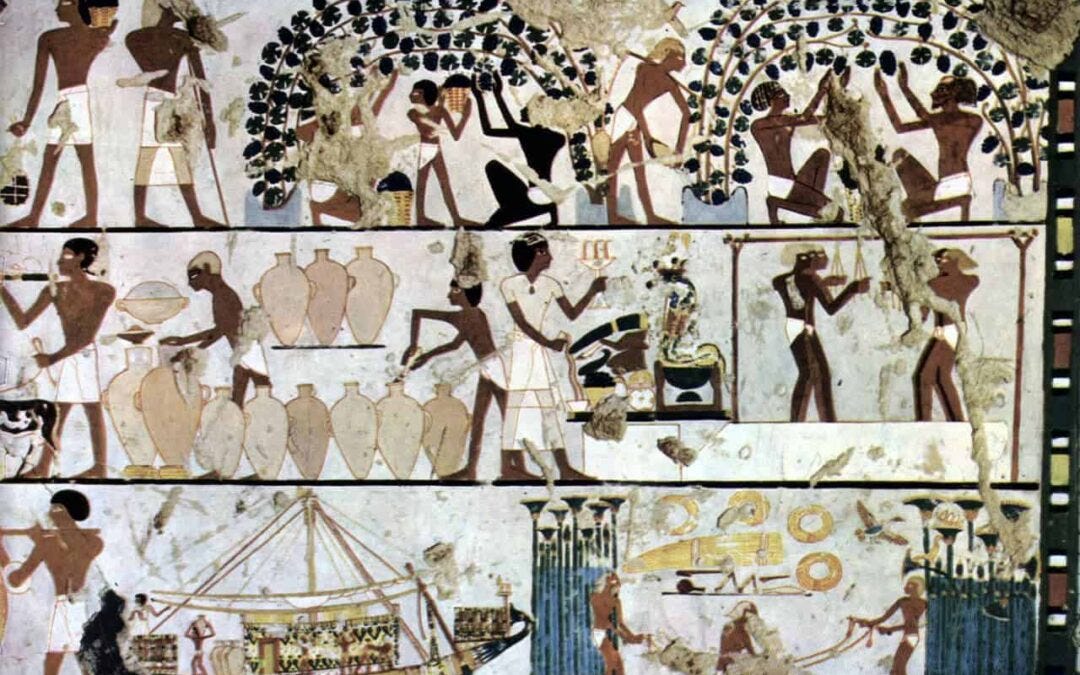

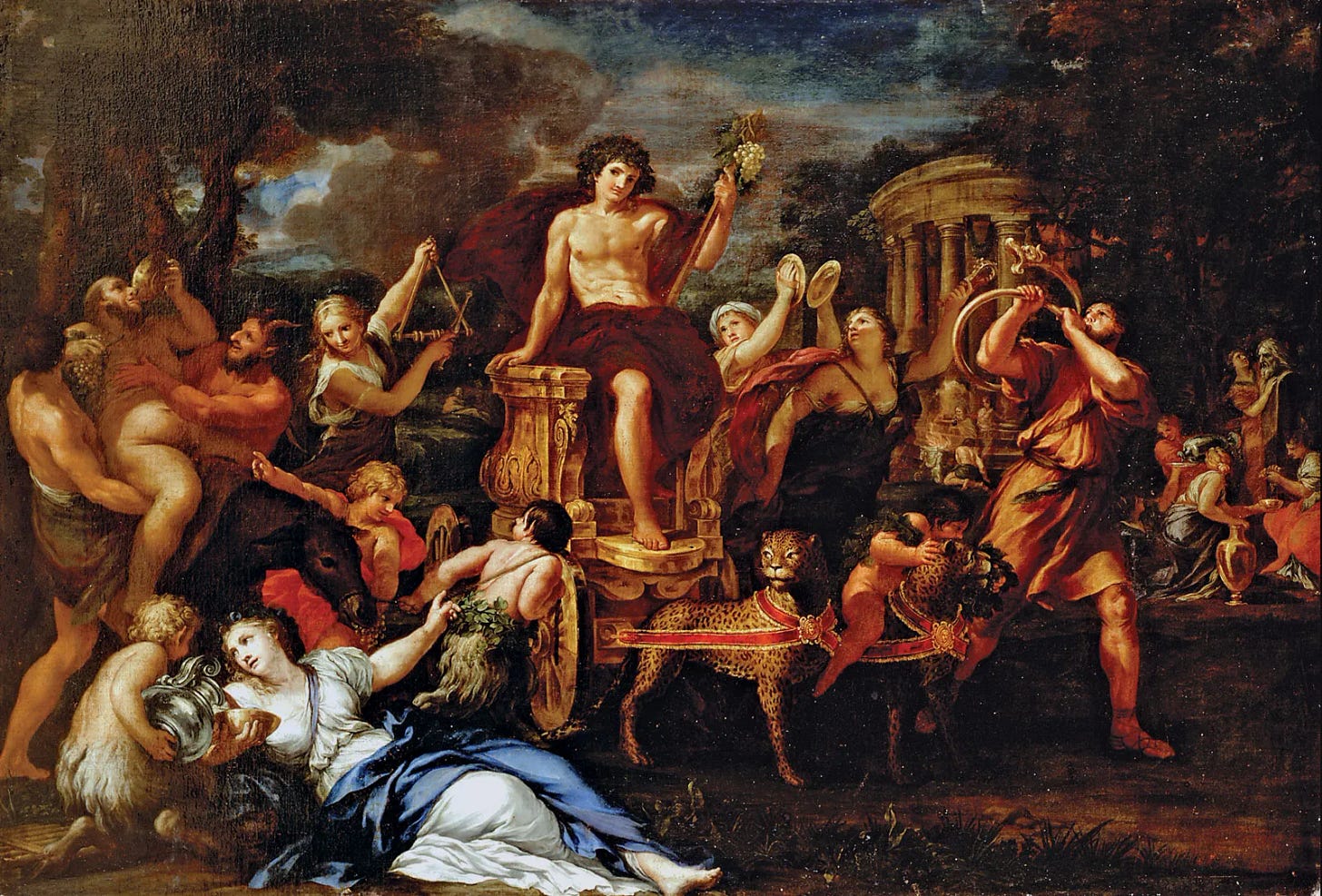
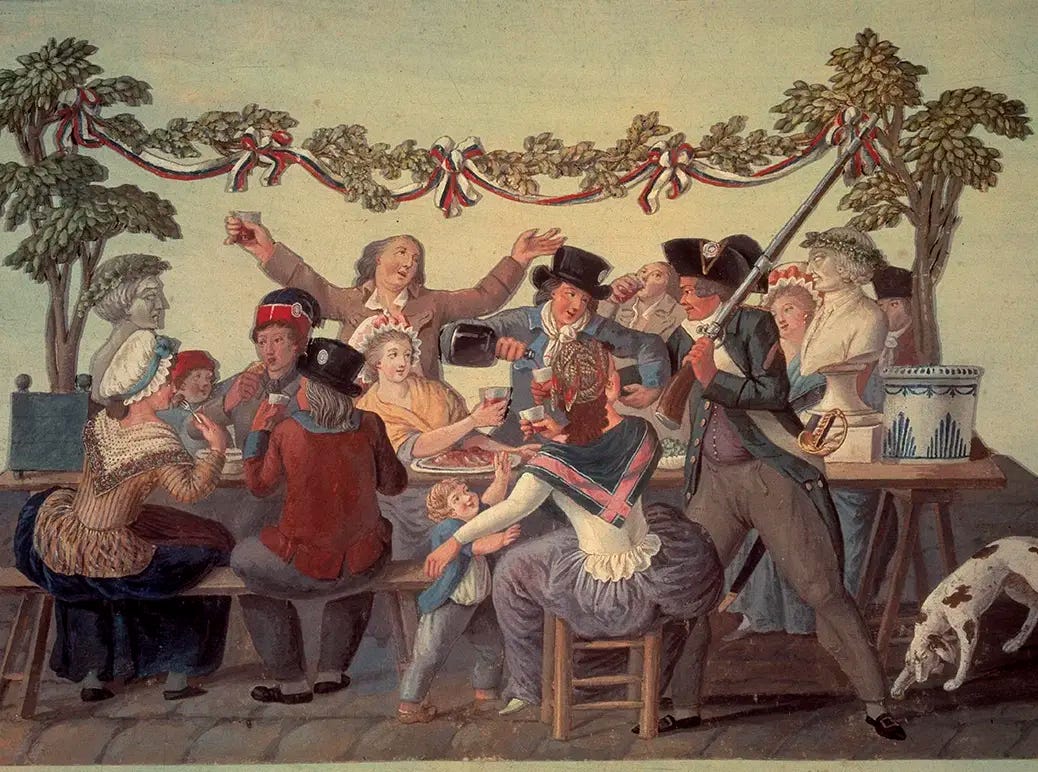
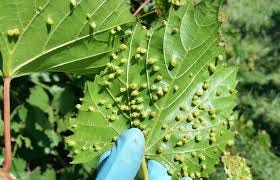
Well done, Claire. Masters of the Air was magnificent. I cried so much during the end credits.
Pls drop the French wine novel <3